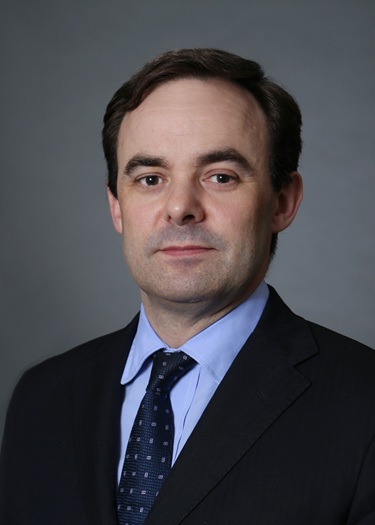On May 8, the English High Court1 struck down the majority of claims by a company for privilege over documents prepared during an internal investigation. The UK Serious Fraud Office (SFO) sought the documents as part of its ongoing investigation into the company. This judgment has significant implications for companies undertaking internal investigations into allegations of potential criminal conduct.
In summary, the Court ruled that a claim for litigation privilege in the context of a criminal investigation will be valid only if, when the relevant documents were created, the company had sufficient knowledge about the matter to believe that there was a realistic prospect that a prosecutor will have enough material to proceed with a prosecution. The mere belief that a prosecutor will commence an investigation into the company (as opposed to a prosecution) is not sufficient to establish a claim for litigation privilege. Separately, the judge’s narrow interpretation of legal advice privilege means that notes of interviews with employees will generally not attract privilege unless they provide “clues” as to aspects of legal advice given to the company.
This decision severely limits the scope of the materials over which privilege can be claimed when a company engages lawyers to undertake an internal investigation. Accordingly, companies will need to work with their lawyers to establish strict protocols at the outset of an investigation so that they (i) make sure they can develop strong arguments for establishing privilege in appropriate materials and (ii) are aware of the types of documents in respect of which the company is unlikely to be able to maintain a claim for privilege.
Overview of the Facts of the Case
Eurasian Natural Resources Corporation Ltd. (ENRC) acquired an entity in mid-2010 that held mining assets in Africa. There were allegations that one of the assets acquired as part of the deal was a mine that had been unlawfully expropriated by the local government in Africa. In addition, a whistleblower raised concerns internally in December 2010 regarding alleged corruption and financial wrongdoing within ENRC’s subsidiary in Kazakhstan. ENRC engaged a law firm to investigate the whistleblower allegations.2
The whistleblower allegations were leaked to the press in August 2011. The SFO sent a letter to ENRC on August 10, 2011, drawing attention to the SFO’s guidelines for self-reporting overseas corruption that were in force at the time3 but noting that the SFO was not yet carrying out a criminal investigation. There were several meetings between the SFO and ENRC and its lawyers between September 2011 and March 2013 in which ENRC updated the SFO on the progress of its investigation. ENRC’s lawyers provided the SFO with drafts of its report on the issues in Kazakhstan, and a final version of the report was sent to the SFO on February 28, 2013. In March 2013 the primary law firm engaging with the SFO on ENRC’s behalf was dismissed. The SFO subsequently began a criminal investigation into ENRC, which remains active.
In the context of that investigation, the SFO brought proceedings for a declaration that certain documents (referred to in the judgment as the “Disputed Documents”) that ENRC was withholding were not in fact subject to legal professional privilege.4 The Disputed Documents were split into the following four categories:
- Notes of evidence given to ENRC’s primary law firm by individuals interviewed as part of the investigation. These documents were created in the period August 10, 2011, to March 25, 2013. ENRC claimed that these documents were subject to litigation privilege or, in the alternative, legal advice privilege (on the basis that they were lawyers’ work product and disclosure would reveal the trend of legal advice provided by the law firm to ENRC).
- Documents generated in the period May 12, 2011, to January 11, 2013, by the forensic accountants as part of their books and records review in London, Zurich, Kazakhstan and Africa. ENRC claimed that these documents were subject to litigation privilege.
- Documents containing or indicating the factual evidence presented by the lead partner from ENRC’s primary law firm to ENRC’s board in March 2013. ENRC claimed that these documents were subject to legal advice privilege or litigation privilege.
- The final category, containing a total of 17 documents, was subdivided into two:
- Fifteen documents were copies of documents generated by the forensic accountants or correspondence related to those documents. Accordingly, ENRC claimed these documents were covered by litigation privilege in the same way as the documents in the second bullet point above.
- The remaining two documents were emails between two executives at ENRC in October 2010. Although one of the executives was ENRC’s Head of Mergers and Acquisitions, he was also a lawyer. ENRC claimed that these emails involved a request for legal advice and were, therefore, subject to legal advice privilege.
Overview of Legal Professional Privilege Under English Law
Two forms of legal professional privilege may be claimed under English law: litigation privilege and legal advice privilege. Litigation privilege is the broader of the two and covers communications with third parties. Under English law, litigation privilege can be claimed in respect of a confidential communication (whether oral or written) that is made:
- between a client and their lawyer or between either and a third party
- for the dominant purpose of (i) obtaining or giving legal advice in relation to litigation (or other legal proceedings) that, at the time the communication is made, is in reasonable contemplation and/or (ii) collecting evidence or information to be used in connection with such litigation/adversarial proceedings.
In addition, the contemplated proceedings must be adversarial rather than investigative or inquisitorial.
Legal advice privilege is narrower in scope than litigation privilege and broadly applies to confidential communications (whether oral or written) that are made:
- between a client and their lawyer
- for the purpose of enabling the client to seek, or the lawyer to give, legal advice or assistance in a relevant legal context.
Key Findings From the Judgment
The judge held that ENRC’s claim for litigation privilege failed in respect of all categories of the Disputed Documents. Only the claim for legal advice privilege in the documents in category (c) above succeeded.
Claims for Litigation Privilege
The claims for litigation privilege were not successful for the following reasons:
- The discussions with the SFO prior to March 2013 were not adversarial in nature as ENRC did not reasonably contemplate a criminal prosecution, only a potential investigation.5
- The documents were created for the purpose of avoiding an investigation, which is not the same as for the purpose of a defence in a criminal prosecution brought against ENRC (i.e., the circumstances did not meet the “dominant purpose” aspect of the test for litigation privilege).6
- Documents were created for the purpose of generating reports that would eventually be shared with the SFO. Given the expectation that the SFO would want to verify that the reports were thorough and accurate, ENRC knew that it could not refuse access to the underlying documents. Accordingly, there could be no privilege in documents that were created for the purpose of sharing with the SFO.7
Claims for Legal Advice Privilege
The claim for legal advice privilege was not successful in relation to the category (a) Disputed Document (i.e., notes of interviewees with ENRC employees and third parties) because “there is no evidence that any of the persons interviewed (whoever they were) were authorised to seek and receive legal advice on behalf of ENRC, and the communications between those individuals and [the relevant law firm] were not communications between those individuals and [the relevant law firm] on behalf of the corporate client.”8
The judge also followed recent authority that notes of interviews will not be privileged simply because they involve a selection of information undertaken by a lawyer.9 The judge considered whether, on the balance of probabilities, the interview notes would give a clue as to legal advice or any aspect of legal advice given to ENRC. The judge determined that there was no evidence to suggest that the notes contained any such clues.
The claim for legal advice privilege in respect of the communications involving the Head of Mergers and Acquisitions from October 2010 failed because the judge held that there was no evidence to suggest he was acting in a legal capacity at the relevant time.
Conclusion
On the basis of this judgment, the circumstances in which a company will be able to claim litigation privilege in the context of a criminal investigation are limited. It will be necessary to show that, at the time the relevant documents were created, the individuals within the company responsible for dealing with the matter considered that there was a realistic prospect of a prosecution. At the early stages of an internal investigation this is likely to be difficult as, in most cases, the objective is to establish the facts so that the company and its advisers can determine whether there has been any wrongdoing. Accordingly, a company will need a strict protocol in place to limit communications regarding the issues being investigated, particularly internal communications and those communications not involving the company’s lawyers. This will ensure that unnecessary documentation is not generated that would be disclosable in any subsequent proceedings.
Companies and their lawyers will also have to take steps to ensure that legal advice is requested by and given to a specifically designated group within the organisation. Any notes of interviews will have to clearly set out the legal advice arising from or given during the interview rather than simply being a distillation of the key facts obtained.
In the context of SFO investigations specifically, the judgment creates some unanswered questions. For example, the SFO recently obtained its most significant Deferred Prosecution Agreement (DPA) in the Rolls-Royce case. One of the reasons the SFO proceeded with a DPA rather than prosecution was because of the extensive cooperation provided by Rolls-Royce, in which “disclosure of all interview memoranda was made (on a limited waiver basis), despite Rolls-Royce’s belief that the material was capable of resisting an order for disclosure, on the basis that it was privileged.”10
It seems unlikely that a company would be able to obtain similar credit going forward as such documentation is unlikely to be privileged. Indeed, the SFO is now likely to have much more scope to claim that companies are being uncooperative if they do not hand over the majority of documents arising from internal investigations.
It should be noted that lawyers for ENRC have indicated that they plan to appeal the decision of the English High Court.
1 The Director of the Serious Fraud Office v. Eurasian Natural Resources Corporation Ltd. [2017] EWHC 1017 (QB)
2 ENRC engaged additional law firms to advise on compliance issues arising from the allegations and to provide legal advice to the relevant internal committees tasked with overseeing the investigation. Forensic accountants were engaged to investigate the accounting positions of various subsidiaries.
3 The guidelines set out a process whereby a company could self-report wrongdoing and, if it provided full cooperation, the SFO might proceed with a civil settlement rather than a prosecution. The guidelines were withdrawn in October 2012, reflecting the change in approach implemented by the new Director of the SFO.
4 It should also be noted that changes in management at ENRC and the dismissal of the lawyers acting for ENRC resulted in difficulties in providing direct evidence to the English High Court as to the reason certain documents were created and what ENRC considered the likelihood of criminal prosecution at the relevant times.
5 The Director of the Serious Fraud Office v Eurasian Natural Resources Corporation Ltd [2017] EWHC 1017 (QB), at paragraphs 151 and 160: “[The SFO] investigation is not adversarial litigation. The policy that justifies litigation privilege does not extend to enabling a party to protect itself from having to disclose documents to an investigator. Documents that are generated at a time when there is no more than a general apprehension of future litigation cannot be protected by litigation privilege just because an investigation is, or is believed to be imminent Criminal proceedings cannot be reasonably contemplated unless the prospective defendant knows enough about what the investigation is likely to unearth, or has unearthed, to appreciate that it is realistic to expect a prosecutor to be satisfied that it has enough material to stand a good chance of securing a conviction.”
6 Id., at paragraph 164: “Even if I am wrong about that, and criminal proceedings were in reasonable contemplation at any material time, none of the Disputed Documents was created for the dominant purpose of deployment in, or obtaining legal advice relating to the conduct of, such anticipated criminal proceedings.”
7 Id., at paragraphs 170 and 171: “Moreover, documents created with the specific purpose or intention of showing them to the potential adversary in litigation are not subject to litigation privilege. It does not matter whether the reason why they are going to be shown to the adversary is to persuade him to settle, or not to bring proceedings in the first place…The commitment to transparency and sharing of information was made in the knowledge and expectation that the SFO would want to satisfy itself that the reports were accurate and thorough, and carry out its own audit. If the SFO called for the underlying material as part of the audit, ENRC and its advisers knew that ENRC could not refuse. Therefore, no legitimate distinction can be drawn between the reports and the underlying materials in terms of the purpose for which they were created.”
8 Id., at paragraphs 177.
9 Id., at paragraph 179.
10 Serious Fraud Office v Rolls Royce plc and Rolls Royce Energy Systems Inc. (Case No. U20170036), at paragraph 20.
Attorney Advertising—Sidley Austin LLP is a global law firm. Our addresses and contact information can be found at www.sidley.com/en/locations/offices.
Sidley provides this information as a service to clients and other friends for educational purposes only. It should not be construed or relied on as legal advice or to create a lawyer-client relationship. Readers should not act upon this information without seeking advice from professional advisers. Sidley and Sidley Austin refer to Sidley Austin LLP and affiliated partnerships as explained at www.sidley.com/disclaimer.
© Sidley Austin LLP



